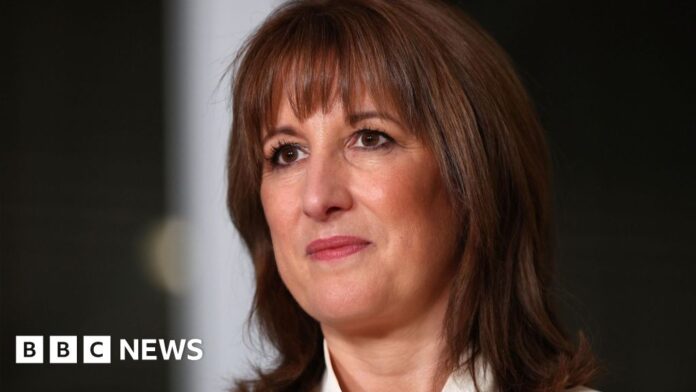Downing Street has denied Chancellor Rachel Reeves misled the public about the state of the public finances in the run-up to this week’s Budget.
There were warnings ahead of the Budget that Reeves could face as much as a £20bn gap in meeting her rule of not borrowing for day-to-day spending.
But in a letter to MPs, the chairman of the Office for Budget Responsibility (OBR) said he had told the chancellor in mid-September the gap would be much smaller.
Conservative leader Kemi Badenoch said the letter showed Reeves had “lied to the public” and should be sacked.
The weeks leading up to the Budget were dominated by speculation the chancellor would increase the rates of income tax, breaking a Labour manifesto pledge.
On 4 November, Reeves used a rare pre-Budget speech in Downing Street to warn the UK’s productivity was weaker “than previously thought” and that “has consequences for the public finances too, in lower tax receipts.”
Then, on 10 November, she told BBC Radio 5 Live: “It would, of course be possible to stick with the manifesto commitments, but that would require things like deep cuts in capital spending.”
These comments, along with her speech, fuelled speculation she needed to raise significant sums to meet her fiscal rules.
However, the Office for Budget Responsibility has now confirmed that before both of these interventions, it had told Reeves the government had in fact received higher than expected tax receipts, which offset the impact of the productivity downgrade.
That meant she had a surplus to meet both of her fiscal rules.
In a letter to the Commons Treasury select committee, OBR chairman Richard Hughes revealed that he told the chancellor on 17 September that the public finances were in better shape than widely thought.
The letter also reveals that on the 31 October the OBR the Treasury it was on course to meet both of the chancellor’s fiscal rules.
But Reeves continued to indicate that she was likely to increase income tax rates.
In her Downing Street press conference, she said: “It is already clear that the productivity performance…is weaker than previously thought.”
She added: “What I want people to understand ahead of that Budget, is the circumstances we face.”
However, the Treasury then backed away from increasing income tax rates, with government sources claiming this was because of better than expected forecasts from the OBR.
It has now emerged the OBR forecasts did not change significantly in the run up to the Budget.
Sir Mel Stride said: “We now know the truth.
“Rachel Reeves spent the months leading up to the Budget claiming she would need to make difficult choices because of a downgrade in the economic forecasts that was not of her making.
“She even let it be known she was considering raising income tax rates.”
He claimed it was “all a smokescreen,” adding: “It appears the country has been deliberately misled.
“In doing so, some people may even have faced higher mortgage rates thanks to the impact on markets from Labour’s chaotic briefings.”
Asked whether Reeves had misled the public and the financial markets, the PM’s spokesperson said: “I don’t accept that.”
He added: “As she [Reeves] set out in the speech that she gave here (Downing Street), she talked about the challenges the country was facing and she set out her decisions incredibly clearly at the Budget.”
He added the government had increased the headroom for the Treasury to meet the fiscal rules, which would creates “certainty and stability for business”.
